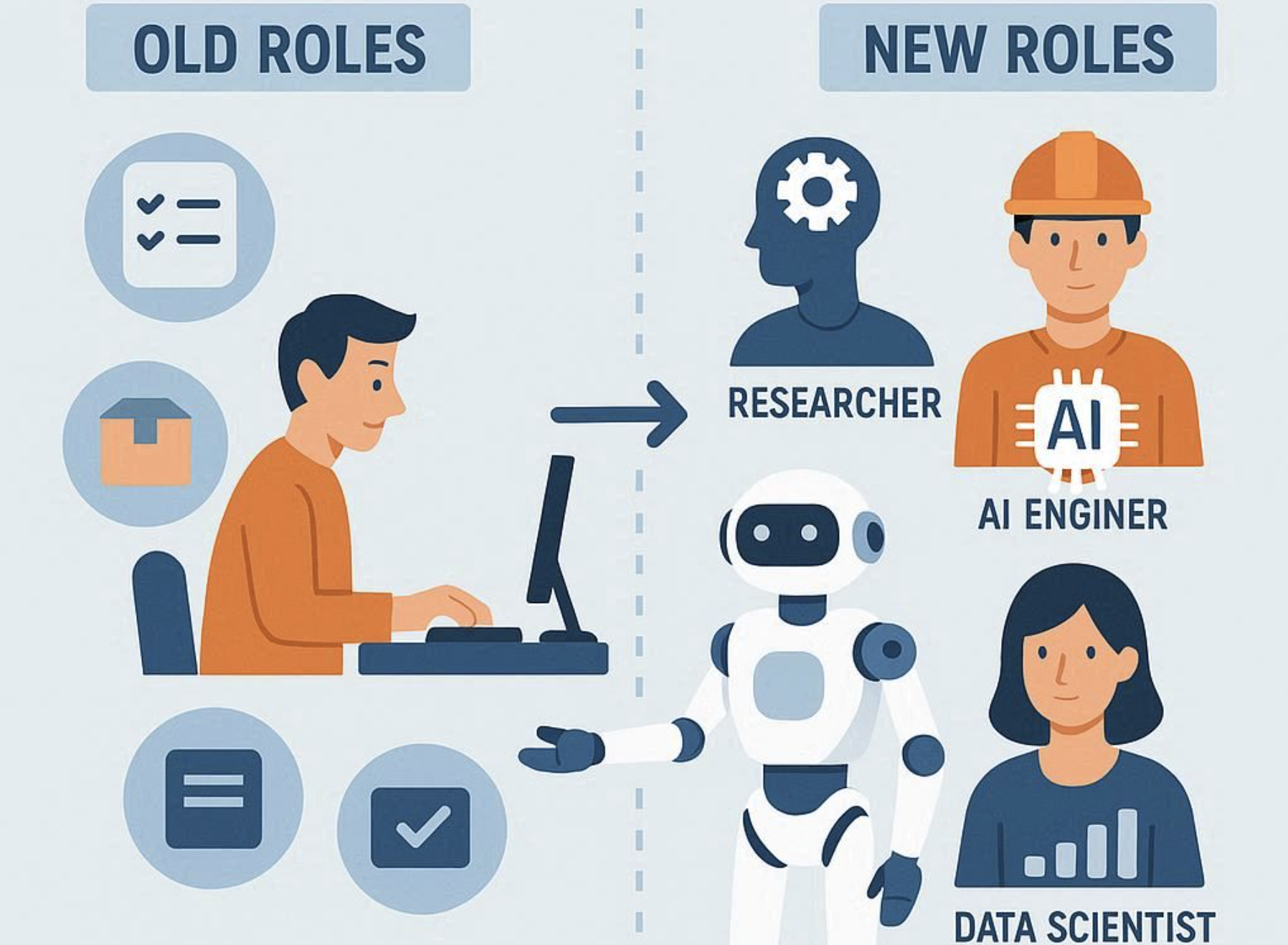The Talent War in Digital Age | 매거진에 참여하세요
The Talent War in Digital Age
#resource #talent #upskill #reskill #org #culture #compensate #HR #AI
Strategies for Upskilling and Reskilling
In 2025, the corporate world finds itself in the midst of an unprecedented transformation.
Artificial intelligence, cloud computing, automation, big data, and generative models are reshaping industries at breakneck speed.
For organizations, failing to keep up no longer means simply falling behind, it means becoming irrelevant.
Yet the pace of change is not limited to technology alone.
The skills of the workforce are evolving just as quickly.
Employees hired only a few years ago may now struggle to meet today’s digital demands.
The gap between what the business needs and what workers can do is widening.
Bridging this gap has a name: upskilling and reskilling.
Why Upskilling and Reskilling Matter
If you scroll through YouTube, LinkedIn, or Reddit today
you’ll find countless threads asking: “If AI replaces my job, what should I learn next?”
This isn’t just an individual concern. For executives, it’s a pressing strategic challenge.
Unlike the past, companies are no longer betting solely on fresh graduates or new hires.
Instead, they’re investing heavily in re-training existing employees. The logic is simple:
Training newcomers takes too much time and money.
In an AI-driven environment, experienced employees can adapt and create value faster.
This shift is leading to fewer entry-level hires and more internal mobility programs, with employees reskilled into new roles or trained through advanced development tracks.

Defining the Terms
- Upskilling:
Expanding an employee’s existing skills to a more advanced level.
Example: A data analyst learning to build and interpret AI models, beyond basic statistics.- Reskilling:
Training employees for entirely new roles with different skill sets.
Example: A factory worker transitioning into a robotics operator or automation manager.
Both are now cornerstones of talent strategy—not just workshops or optional training, but part of how companies plan for survival.
Global Trends and Examples
AI as a Core Competency
Companies like Google, Microsoft, and Amazon now treat AI literacy as a mandatory skill across departments.
At Microsoft, employees undergo mandatory ChatGPT training, and teams running AI-based projects are rewarded with bonuses.Automation Reducing Repetitive Tasks
With RPA, AI writing assistants, and chatbots, repetitive work is shrinking. Employees are instead pushed toward problem-solving and creative decision-making.Corporate Learning Platforms
Consulting giants like Deloitte and PwC run in-house academies. Deloitte’s “AI Academy,” for example, equips staff with hands-on AI knowledge modules.Agility in Startups and SMEs
Smaller organizations adapt faster, often blending roles. A startup marketer might learn coding tools, while engineers pick up AI-driven customer analytics.
Challenges for Companies
- The Learning Gap:
Technology evolves too quickly for traditional training models. Many employees are unsure what to learn next.
- Cultural Resistance:
Some see new tools as threats, clinging to old routines.
- ROI Concerns:
Education programs cost money, but the return is not always immediate.
- Retention Risk:
Ironically, skilled employees often leave once they’ve upskilled.
What Works: Effective Strategies
- Personalized Learning Paths:
Tailor training to each employee’s role, goals, and pace. AI-driven platforms help track progress and outcomes.
- Project-Based Learning:
Real-world projects foster deeper engagement and faster skill transfer.
- Mentorship and Coaching:
Pairing senior and junior staff builds both capability and culture.
- Incentives:
Certifications, promotions, and bonuses motivate participation.
- Visible Leadership:
When executives learn and share openly, it signals that learning is not optional—it’s cultural.
The Future Workforce
Tomorrow’s talent won’t be judged only by technical skills. Companies will prize:
Problem-Solving Ability: Tackling challenges machines can’t.
Digital Literacy: Using tools, data, and AI to drive decisions.
Learning Agility: The ability to self-teach and adapt continuously.
Collaboration & Communication: Thriving in global, remote-first teams.
Learning as a Survival Strategy
In the digital era, learning is no longer optional. Upskilling and reskilling are survival strategies, both for companies and individuals.
Organizations must move beyond offering training sessions.
True competitiveness requires integrating learning into culture, incentives, career design, and leadership engagement.
Employees, in turn, must embrace self-directed learning and diverse experiences.
At the end of the day, the edge doesn’t come from technology itself.
It comes from the people who can make technology matter.






